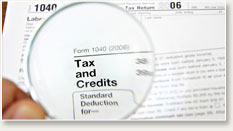IRS Payment Plans (OLD)

So you have either agreed to the amount the IRS says that you owe or you are assessed the tax over your protests and now your case is in “collections.” Tax collectors are called Revenue Officers (as opposed to Revenue Agents who do many other administrative tasks other than collect taxes). The Revenue Officer has many tools to compel a taxpayer to pay the tax, or face the wrath of these collection tools: liens, levies, garnishments, and seizure of assets.
So what are your payment options?
- Full pay – either in one check or over several months (usually 3- 6 months). Selecting this option may preclude the filing of a tax lien or other Draconian collection activity for so long as you abide by your agreement to make the monthly payments.
- Installment agreement – generally, the maximum window over which the IRS will accept payment is 60 months
- Tiered installment agreement
- Offer-in-compromise
- Uncollectible account status
Consider Putting Your Tax Debt on a Monthly Plan.
If you cannot pay all that you owe now and do not qualify for an offer in compromise, an IRS installment agreement may be your next best option. Consult McFARLANE LAW, PLC for your full range of payment options. Payment Agreements allow you to pay IRS debt in full in smaller, more manageable amounts, usually in equal monthly payments. The amount of your installment payment will be based on the amount you owe and your ability to pay that amount within the time available to the IRS to collect tax debt from you.
At the law firm of McFARLANE LAW, PLC in Scottsdale, Arizona, we represent clients throughout the United States in making payment arrangements with the IRS. Contact us to learn more about IRS payment plans.
Understanding IRS Installment Agreements
The IRS allows taxpayers who are unable to pay the full amount of taxes they owe on time to enter into payment plans — also known as installment agreements — under which they will pay their taxes over time in monthly installments.
Tax Note: Once you enter into an IRS payment plan, you will be charged interest — at generally high rates — on your taxes and may be hit with additional penalties if you are unable to keep up with your monthly installments. Even if you agree to a Payment Agreement, the IRS may still file a Notice of Federal Tax Lien to secure the government’s interest until you make a final payment. However, the IRS cannot levy against your property (1) while your request for a Payment Agreement is under consideration, (2) while your agreement is in effect, (3) for 30 days after your request for an agreement has been rejected, or (4) for any period while an appeal of the rejection is being evaluated by the IRS.
Depending on your income, assets and other unique circumstances, you may be able to make an offer in compromise in an effort to reduce your overall tax liability. The IRS will only accept an offer in compromise under certain circumstances, and for many people, the installment agreement will remain the best approach. Contact us so we can advise you on your options.
Exploring Payment Plans in Bankruptcy
Another way to put certain tax debts on a payment plan may be to file for Chapter 13 bankruptcy. While most tax debts cannot be discharged in bankruptcy, the IRS may be willing to accept payment of tax debts as part of the Chapter 13 payment plan with the bankruptcy trustee.
This approach will not work for everyone. Before taking the major step of filing for bankruptcy, you should consult with both a tax attorney and a bankruptcy attorney about your options. Contact us to schedule an appointment with one of our experienced tax lawyers.
Full Payment Services Provided to Our Clients
Our Firm can also assist taxpayers to full pay their IRS tax debt. Many taxpayers struggle to obtain accurate and consistent information about their tax account with the IRS. We can obtain and provide the correct payoff amount from the IRS or ADOR for the taxpayer. Additionally, we provide a break down of the taxes, penalties, and interest for each of the specific years or periods owing. We provide clear and specific payoff instructions on how and where to send payment. Once payment has been sent to the IRS or ADOR, we will contact the relevant agency to verify that payment has properly posted to the account. Once the payment has been received and processed by the IRS or ADOR, we confirm with the agency that the account has been paid in full. We further demand that all further collection activity be dismissed and that any tax liens be released. We also work with you to ensure your credit record is eventually cleared.